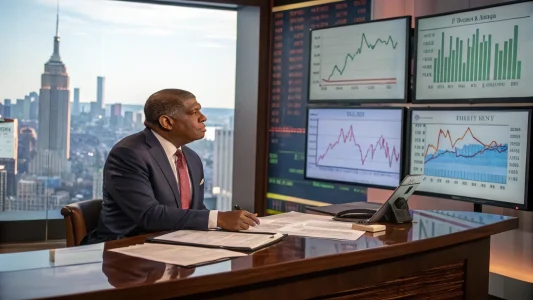The Trump administration announced Friday that it will impose a new $100,000 fee for H-1B visas, saying the measure will help American workers.
Economists acknowledge that the fee could benefit some U.S. workers, but they warn it could harm many more. “H-1B visas cause innovation, they cause entrepreneurship, they cause more R&D investment,” said George Mason University economist Michael Clemens. “They cause higher productivity in the whole U.S. economy, which generates job opportunities and higher earnings for native workers across the skill spectrum.”
The Trump administration implemented a $100,000 visa fee
Numerous studies demonstrate that the H-1B program has bolstered the American economy and assisted domestic workers, as Clemens and others point out. The program has remained controversial since Congress established it in 1990 as the primary route for highly skilled foreign workers to enter the United States. Critics argue that it gives foreigners jobs at the expense of Americans.
A Pew Research Center study found that in 2023, Indian-born workers received nearly three-quarters of these visas, while Chinese-born workers received slightly more than one in ten. Large U.S. tech companies employ many H-1B holders in STEM fields, especially computer-related positions.
Last year, Amazon.com had more H-1B approvals than any other company. The goal of the new $100,000 fee is to reform what the Trump administration claims is a system that tech companies use to avoid hiring Americans. On Friday, Trump defended the change: “We’re having people come in, people that in many cases are very successful or whatever, as opposed to walking over the borders.”
Economists give conflicting opinions
Economists say some native-born workers could benefit. “The typical H-1B visa employee working for the typical for-profit company that’s hired them is doing work for whom otherwise available workers exist,” said Notre Dame economist Kirk Doran. He noted that limiting new foreign workers could improve job prospects and wages for some domestic programmers.
Other economists caution about more significant dangers. According to research by Giovanni Peri, Kevin Shih, Chad Sparber, and Britta Glennon, limiting H-1B visas can encourage businesses to relocate their operations abroad and that foreign-born workers frequently increase wages for American workers. Jennifer Hunt, an economist at Rutgers, expressed disapproval of the policy, saying, “”his misguided measure could shut down the H-1B program entirely. And if that happens, it’ll have a very detrimental effect on the economy as a whole.”
The White House cited studies that demonstrated wage pressure on computer scientists in the 1990s, but it omitted results that showed efficiency and innovation helped other workers. According to economist Gaurav Khanna, “When we consider the broader picture, U.S.-born workers as a whole experience net benefits.”
Featured Image Credit: Porapak Apichodilok; Pexels: Thank you!















